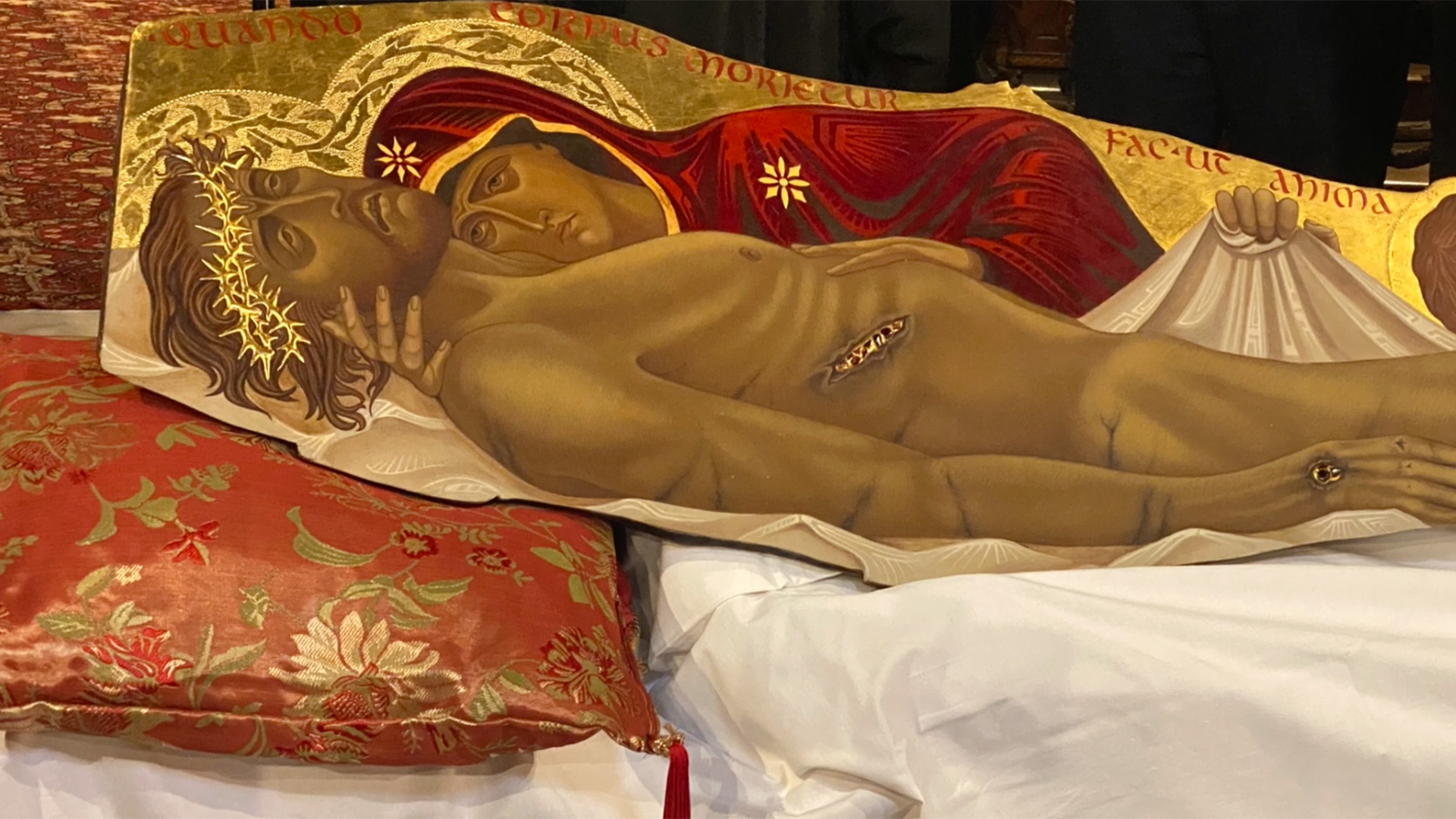
The Donna de Paradiso, also known as ‘Laude di Donna de Paradiso’, is a poetic work by Jacopone da Todi, a famous Italian poet and Franciscan friar who lived between the 13th and 14th centuries. The work is one of the most beautiful and profound expressions of the spiritual and mystical dimension of Jacopone’s poetry, emphasising the theme of the soul’s journey towards union with God.
The poem consists of 63 stanzas, each composed of 13 verses in the form of a song, a type of lyric poetry popular in medieval Italy. The central theme of the poem is the search for the divine, expressed through the image of a beautiful woman called ‘Donna de Paradiso’, who represents the ideal of spiritual perfection and the goal of the soul’s quest.
The poem begins with the speaker’s description of Donna de Paradiso as a vision of beauty that surpasses all earthly standards. She is described as a radiant and gentle woman who embodies the virtues of love, wisdom, and mercy. The speaker is deeply moved by her presence and is inspired to follow her example in his own spiritual journey.
As the poem progresses, the speaker recounts his own spiritual struggles, doubts, and desire for a deeper union with God. He confesses his own sins and weaknesses and acknowledges that only through God’s grace can he hope to reach the state of spiritual perfection represented by Donna de Paradiso. She also reflects on the transience of human life and the inevitability of death and expresses hope for eternal life in the presence of God.
Throughout the poem, the speaker uses rich and complex symbolism to express his spiritual insights and experiences. The image of Donna de Paradiso is a metaphor for the divine presence that permeates all of creation, and her beauty represents the perfection and harmony of the spiritual realm. The speaker also uses images from nature, such as the sun, moon, and stars, to evoke the transcendent dimension of the divine.
The language of the poem is characterised by musicality and rhythmic flow, characteristic of the song form. The use of repetition, alliteration and rhyme creates a sense of harmony and unity that reflects the central theme of the poem: spiritual perfection and union with God.
In conclusion, Donna de Paradiso is a masterpiece of medieval Italian poetry that expresses the profound spiritual insights and mystical experiences of its author, Jacopone da Todi. Through its rich symbolism and musical language, the poem invites the reader to embark on a journey towards the divine and strive for the ideal of spiritual perfection represented by Donna de Paradiso.

